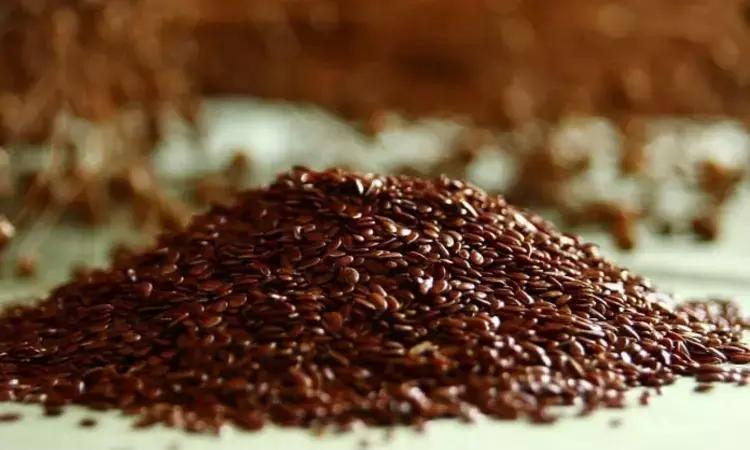Brazil: Flaxseed and Blood Sugar Control
There is extensive evidence that the postprandial blood sugar peak is associated with diabetes mellitus and its complications. Treatments that promote the attenuation of peaking of postprandial blood sugar observed in individuals with type 2 diabetes mellitus (T2DM) improve several parameters, such as inflammation, endothelial dysfunction, cardiovascular damage, atherogenesis predictors, and aging indicators. Some foods, such as flaxseed, have blood sugar lowering or antihyperglycemic properties without severe reported side effects.
Golden flaxseed could be a simple and affordable dietary strategy for improving blood sugar control in patients with type 2 diabetes mellitus (T2DM), a recent study in the journal Nutrients has revealed.
The study showed that compared to a control breakfast (no flaxseed ingested), the ingestion of 15 g of ground raw golden flaxseed prior to a breakfast containing complex carbohydrates reduced the 2 h postprandial glycemic response in men with T2DM.
Several studies have shown postprandial glucose peak to be associated with diabetes mellitus and its complications. Treatments that promote the attenuation of postprandial hyperglycemia observed in patients with T2DM improve various parameters such as endothelial dysfunction, inflammation, cardiovascular damage, aging indicators, and atherogenesis predictors.
Flaxseeds have antihyperglycemic properties without known side effects. Long-term consumption of flaxseed (for 8 to 12 weeks) is shown to reduce glycated hemoglobin, blood glucose, total cholesterol, triglycerides, and blood pressure in T2DM patients, and improved insulin sensitivity and reduced insulinemia and blood sugar in those with prediabetes and in obese or overweight individuals. Its effects on the postprandial glycemic response, however, remain unknown.
Considering the above, a research team from Brazil led by Fernanda Duarte Moreira aimed to investigate the acute effects of raw flaxseed consumption on the 2 h postprandial glycemic curve in men with type 2 diabetes in a randomized crossover clinical trial.
The study included nineteen men with T2DM who were randomly assigned to a standardized breakfast with a previous intake of 15 g of ground raw golden flaxseed (flax) or without (control).
The measurement of glycemia was done at fasting and postprandial at 15, 30, 45, 60, 90, and 120 min. Palatability markers (smell, visual appeal, and pleasantness of taste) and taste intensity (saltiness, sweetness, sourness, bitterness, and creaminess) were evaluated.
Key Findings
- The peak glucose rise and the 2 h AUC glycemic response were reduced in the flax group by 17% and 24%, respectively.
- The glucose peak time, palatability, and taste parameters did not differ between the two groups.
"Our results have practical implications considering the wide availability of golden flaxseed in many countries and represents a simple and affordable dietary strategy that could be adopted by diabetes patients for improving glycemic control," the researchers wrote.
"For future studies we recommend, beta-cell function, glucose and insulin levels, incretin hormones, and insulin sensitivity should be assessed for better understanding of the flaxseed mechanism of action in reducing postprandial glycemic excursions," they conclude.
Reference
Moreira FD, Reis CEG, Welker AF, Gallassi AD. Acute Flaxseed Intake Reduces Postprandial Glycemia in Subjects with Type 2 Diabetes: A Randomized Crossover Clinical Trial. Nutrients. 2022; 14(18):3736. https://doi.org/10.3390/nu14183736



0 Comments
Post a comment
No comments yet. Be the first to comment!